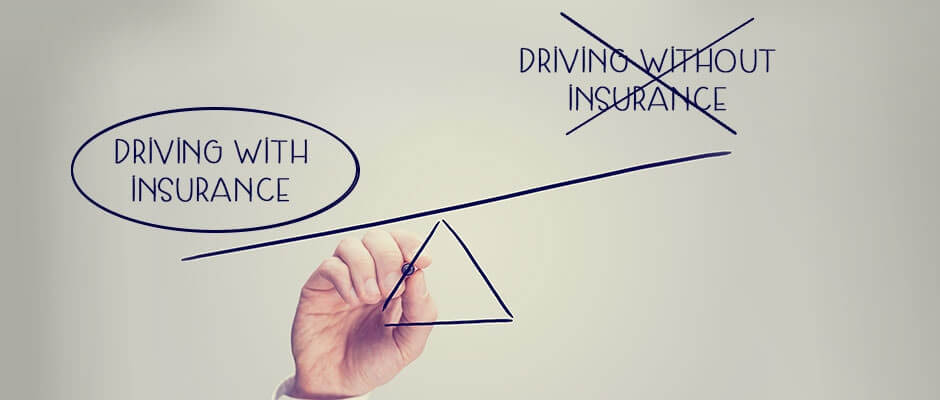In the UK, it’s illegal to drive a vehicle on a road, or in a public place, without at least 3rd party insurance.¹
Even if the vehicle itself is insured, you, as the driver, must be correctly insured to drive it or you could be penalised.
Driving without insurance is a serious offence
If you’re caught driving a vehicle you’re not insured to drive, the police could give you a fixed penalty of £300 and 6 penalty points.²
And if the case goes to court, the penalties could be much higher. You could be fined up to £5,000 and be disqualified from driving. A driving ban can often be in the region of 28 days but it can also be substantially longer for repeat offences.³
The police also have the power to seize, and in some cases, destroy the vehicle that’s being driven uninsured.
Consequences for uninsured drivers
Ameet Chana, perhaps best remembered as “Adi Ferreira” on “Eastenders”, explains the risks of driving without proper insurance.
“Absolute” offence
Driving uninsured is an “absolute” offence, meaning that if there is no insurance in place and the vehicle is in use, an offence has been committed.⁴
It is up to the user and the owner of the vehicle to make sure that the correct insurance is in place before anyone uses it.
Having comprehensive cover doesn’t mean that your insurance policy automatically allows you to drive any other vehicle. All drivers need to check that insurance cover is adequate before using a vehicle, but, additionally, the owner of the car must ensure that the driver is insured. If an owner allows their car to be used by a driver who is not insured they are also guilty and face the offence of permitting the vehicle to be used by an uninsured driver, plus a licence endorsement of 6–8 points and a fine.
If you have a telematics black box policy you’re only insured to drive the car covered under your policy. If you wish to drive a vehicle other than the one on your policy, you must make sure the vehicle’s cover is extended to include other drivers. Additionally, you can’t give permission for someone else to drive your car, unless they are a named driver on the policy or they have an extension on their insurance which allows them to drive other cars.
Uninsured vehicles
In England, Wales and Scotland, you must have motor insurance for your vehicle if you use it on roads and in public places. The only time you do not need to insure your vehicle is if it is kept off the road and declared as off the road (SORN). This rule is called ‘continuous insurance enforcement’.⁵

Being caught driving without insurance
Nowadays police are using increasingly sophisticated detection systems. Not only do police check the motor insurance database (MID) which lists every single car insurance policy but they also have automatic number plate recognition (ANPR) cameras which can automatically read your number plate as you drive past and run it through the MID database to check if you are insured. You could then be stopped, your car keys confiscated and your car impounded.
Check for yourself
You can check that your car is on the MID database by logging on to askMID.com at ownvehicle.askmid.com. And, if you have an accident and need to check if someone else’s vehicle is insured you can visit the askMID ’Other Vehicle’ Look-up facility.⁶
So don’t take chances, always make sure you and your car are properly insured.
Sources:
[1] [2] gov.uk/vehicle-insurance/driving-without-insurance
[3] [4] drivingban.co.uk/drivingban/drivingwithoutinsurance.htm
[5] gov.uk/vehicle-insurance/uninsured-vehicles
[6] http://ownvehicle.askmid.com/
